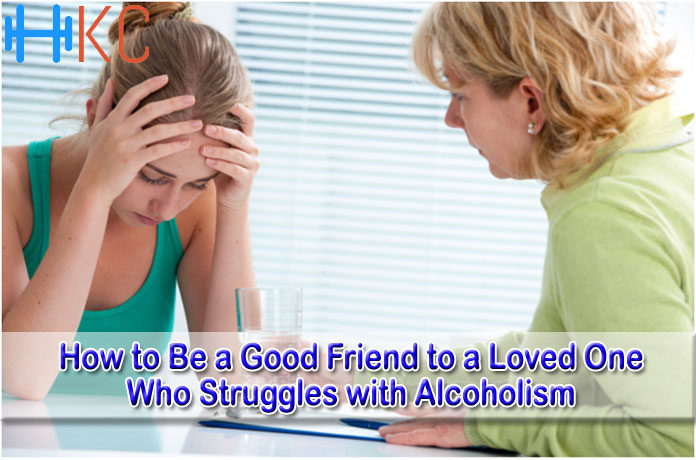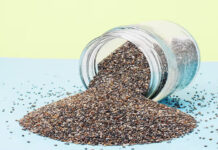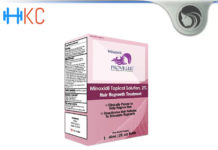When a friend or family member is struggling with alcohol abuse, it is normal to want to do the best by them. However, it is difficult to know where to start. Is alcoholism something they should handle on their own if they want to get better or is it possible to do anything to help them seek alcohol abuse treatment?
The answer is that loved ones are important people in an addict’s support network and there is much they can do to help them enter an alcohol treatment center. Here we give you a quick guide on what you can do when someone close to you is suffering from alcoholism.
Advice from the National Institute on Drug Abuse (NIDA) suggests that the best way to be a friend to a person with alcoholism is to say something. It doesn’t have to be a dramatic or staged event such as an intervention but it is useful for the addict to know they have been rumbled or at least someone else has spotted they could have a problem.
Many people battling alcoholism will be unaware of the extent of the damage they are doing to themselves unless those close to them make it apparent. Asking your friend to speak to an addiction professional or attend a group therapy session is a good way of letting them know they are showing signs they need to enter an alcohol treatment center in Pennsylvania.
How to Be a Good Friend before Alcohol Abuse Treatment
Close friends and relatives of alcoholics are often able to help them considerably before they even enter a rehab center. Even after agreeing that a stay in an alcohol or drug addiction treatment center is necessary, they may still feel anxious about attending rehab and may even wonder if they can face life without alcohol. Being there and offering support is an important quality of an alcoholic’s friend and can sometimes make a big difference to how soon they enter an alcohol or drug addiction treatment center.
Once the individual has accepted their need to enter alcohol abuse treatment, you can then help them in the following ways:
- Help them to pack by going over the approved list of suggested items from the rehab facility
- Offer to drive them to the airport or the facility itself if it is within a reasonable distance
- Make arrangements for the care of any pets while your friend is in an alcoholism treatment program
- Offer to stop by their house to take care of watering plants or collecting mail while they’re away
- Just be present and ready to talk whenever needed and help them remain positive about an alcohol-free future
How to Be a Good Friend during Rehab
One your friend has entered alcohol abuse treatment; don’t feel as though you should leave them to it. Most rehab centers have a strict policy on who patients can communicate with but those who offer support and will continue to do so in future will be actively encouraged to call and visit. There are plenty of opportunities for loved ones to actively participate in treatment with family therapy sessions providing an open platform for frank communication.
It’s always a good idea to bear in mind that it is not just those with addiction issues who need therapy. Very often loved ones and close friends are very heavily impacted by the negative behaviors of addicts and they can benefit significantly from counseling. Many people are surprised by how much they have been negatively impacted by the addictive behaviors of another person and they need to focus on their own emotional healing while their loved one is in an alcoholism treatment program.
How to Be a Good Friend after Rehab
Returning home after attending residential rehab can be a bittersweet experience. The transition from the sober and secure environment of a rehab center back into daily life can be intimidating for patients as they near the end of their program. This is a vulnerable time which can place recovering addicts in direct contact with triggers for alcohol abuse, making their need for trustworthy friends greater than ever.
You can continue being a supportive friend after rehab by helping them return to “normal” life in practical ways. Distract them from prolonged periods of time with nothing to do by getting them involved in healthy activities such as working out or just taking a long walk in the park. Offer to go with them to any social occasions where alcohol will be present and show your friend solidarity by abstaining yourself.
Ultimately, individuals in early recovery are still learning that life can be good without alcohol. They will have learned many techniques in rehab they can apply to their daily lives to help them maintain sobriety and as a good friend, you are an important part of this transition. It has been proven by research time and again that alcoholics are more likely to remain sober if they feel property supported by those close to them.
Choose Your Words
Whether before, during or after attending rehab, what you say as a friend and the words you choose really matter. It is important to bear in mind the distinction between an alcoholic and a person with an addiction and that it is not a badge-wearing illness. Although it could be perceived as a grammatical error, referring to your friend as an alcoholic implies that they are defined by their addiction. This is unhelpful when they are working hard towards overcoming the illness and finding themselves again.
The language used around recovering addicts is important because it needs to be clear that they are suffering from an illness rather than the consequences of a lifestyle choice. Despite our better understanding of alcoholism, there are still some widespread views on the subject that are outdated. Remembering that your friend is just that – your friend – regardless of their addiction is crucial in paving the way for a strong relationship in the future.























